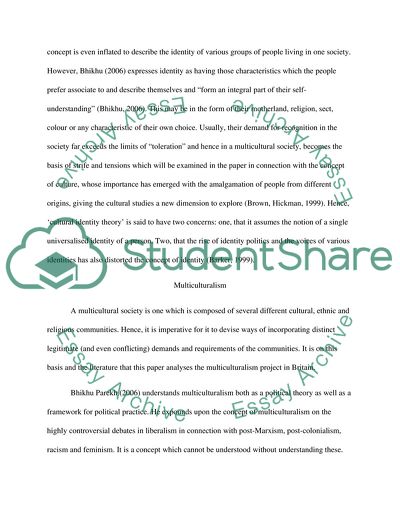Cite this document
(Nationalism and Multiculturalism: Making Way into Britain Coursework, n.d.)
Nationalism and Multiculturalism: Making Way into Britain Coursework. https://studentshare.org/sociology/1737173-multiculturalism-is-an-appropriate-concept-for-approaching-problems-of-identity-in-contemporary-britain-critically-discuss-this-statement-using-specific-examples-to-illustrate-your-argument
Nationalism and Multiculturalism: Making Way into Britain Coursework. https://studentshare.org/sociology/1737173-multiculturalism-is-an-appropriate-concept-for-approaching-problems-of-identity-in-contemporary-britain-critically-discuss-this-statement-using-specific-examples-to-illustrate-your-argument
(Nationalism and Multiculturalism: Making Way into Britain Coursework)
Nationalism and Multiculturalism: Making Way into Britain Coursework. https://studentshare.org/sociology/1737173-multiculturalism-is-an-appropriate-concept-for-approaching-problems-of-identity-in-contemporary-britain-critically-discuss-this-statement-using-specific-examples-to-illustrate-your-argument.
Nationalism and Multiculturalism: Making Way into Britain Coursework. https://studentshare.org/sociology/1737173-multiculturalism-is-an-appropriate-concept-for-approaching-problems-of-identity-in-contemporary-britain-critically-discuss-this-statement-using-specific-examples-to-illustrate-your-argument.
“Nationalism and Multiculturalism: Making Way into Britain Coursework”. https://studentshare.org/sociology/1737173-multiculturalism-is-an-appropriate-concept-for-approaching-problems-of-identity-in-contemporary-britain-critically-discuss-this-statement-using-specific-examples-to-illustrate-your-argument.


